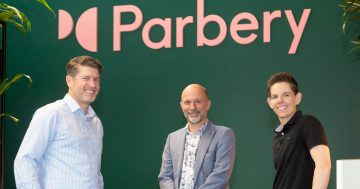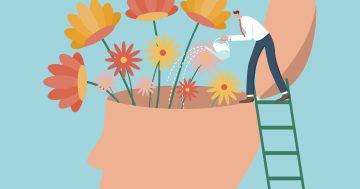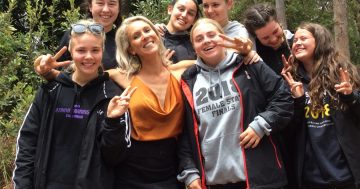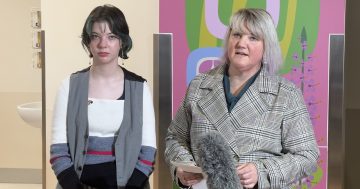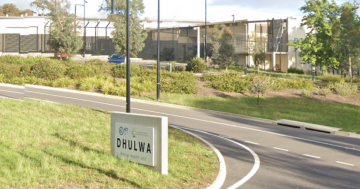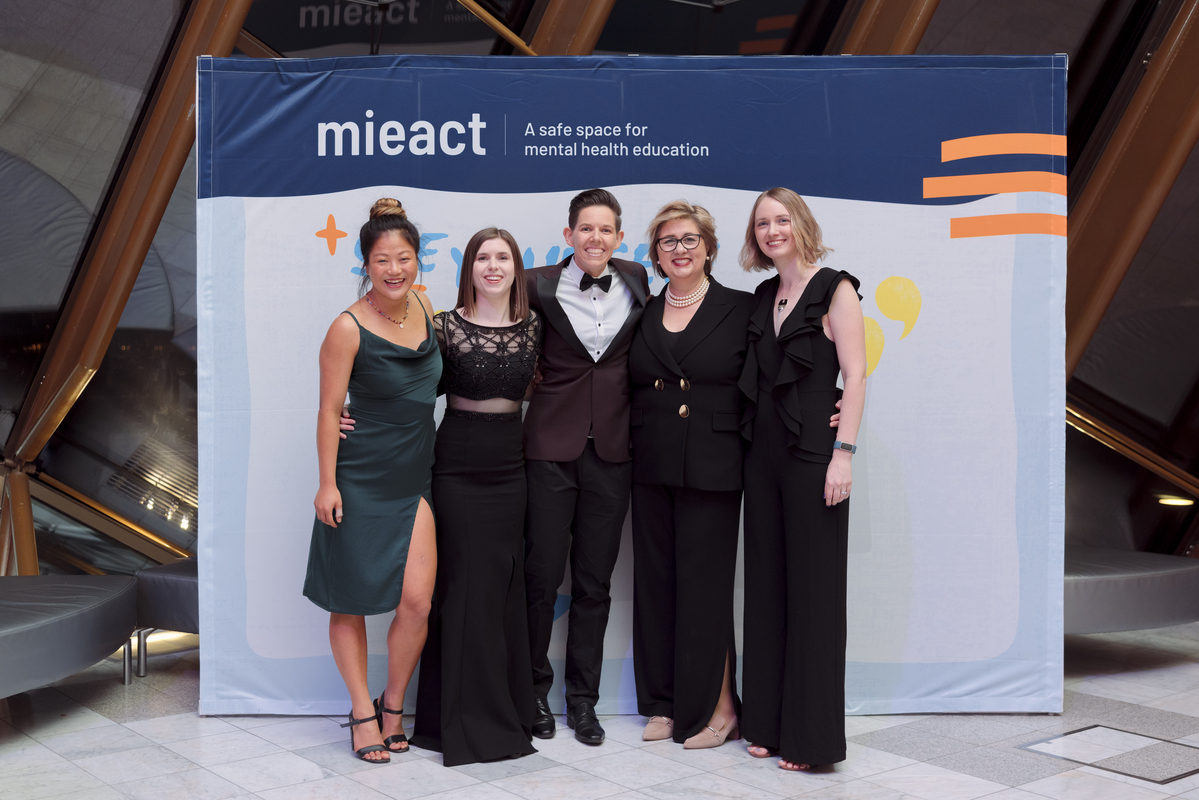
Last year’s MIEACT Fundraising Gala raised more than $100,000 – enough to deliver a new program to ACT primary schools. Photo: MIEACT.
In the past year, demand for the Mental Illness Education ACT (MIEACT) high school programs has exceeded delivery capacity by more than 100 per cent and need for the organisation’s adult programs has also surged.
“People are under enormous pressure right now,” program educator Beth Garwood said.
“They’re in desperate need of strategies, tools and support systems to help us cope.”
As MIEACT’s volunteer manager, Beth delivers sessions using her “lived experience” – first-hand knowledge of the topic and a crucial component of MIEACT’s programs. The former police officer unpacks the tools and strategies she puts in place to cope with her Post Traumatic Stress Disorder (PTSD) diagnosis.
But while her lived experience was undeniably an asset, she said talking about mental health, if not done in an informed way, could do more harm than good.
That’s why MIEACT youth and adult programs are delivered using the DoNOHarm framework. Developed in 2011, the framework is trauma-informed, recovery-oriented and has been evaluated by the University of Canberra (UC) as a best-practice approach to communicating about lived experience.
“A lot of these discussions can involve very serious topics such as trauma, periods of self-harm and suicide. It’s so important to hear these stories because it’s in secrecy these problems thrive. But we now know talking about them in certain ways can pose a great risk,” she said.
“The goal is to educate, reduce stigma and promote health-seeking behaviours.”
More specifically, if we talk about mental health without being aware of the safe ways to do so, there’s the potential of triggering, re-traumatising or in the case of suicide and self-harm, inspiring copycat behaviours.
For Beth, this means following certain guidelines when she recounts her experiences over several years as a police officer in the Northern Territory, during which she witnessed three particularly horrific incidents involving children.
“It led me to bottom out, and I was eventually diagnosed with PTSD and bipolar disorder,” she said.
“While sharing my story can be a powerful tool in reducing stigma and promoting health-seeking behaviours, I can do so in a safe way. I don’t have to share specific gory details of the incidents that led to my trauma.
“The idea is that the audience can empathise with me, feel with me, but they can’t necessarily visualise what happened. That way they can come on the journey of help-seeking and recovery rather than focussing on the traumatic details. The underlying message remains one of hope and optimism, not distress.”
MIEACT’s high school programs are designed to help young people tackle mental health concerns where they tend to take root – in early adolescence.
One in seven school-aged children and youth have a major mental health problem right now and one in 10 teenagers have engaged in self-harm. Fifty per cent of mental health problems start to occur before age 14.
The DoNOHarm framework has been adapted and pushed out nationally to educate businesses, government departments and community groups on how to safely talk about mental health.
MIEACT CEO Brad Shrimpton said the DoNOHarm framework and training resonated strongly with organisations because it could be used in a wide range of ways.
“One context can be the purposeful sharing of lived experience to inform policy and program development,” he said. “Another can be supporting a conversation between an employee and manager, initiated by either party, about mental illness.
“A common context for the groups we provide DoNoHarm training to is frontline workers or people engaging with lived experience stakeholders. Some clients, such as the Department and Health and Aged Care, appear to be embracing DoNOHarm because it flexibly supports all these needs.
“DoNOHarm provides practical tools to turn powerful statements into meaningful actions the workforce can implement to achieve tangible outcomes.”
MIEACT’s corporate programs operate as a Pay It Forward measure, allowing the organisation to continue to deliver its community and school-based programs for little or no charge.
“This has been especially important this year as we have – and continue – to see an extraordinary increase across our youth-focussed mental health programs,” Brad said.
“Unfortunately this year we have not been able to support program requests from many schools. We don’t want to repeat that in 2024.”
Along with the Pay It Forward measure from the private sector and limited government funding, the organisation relies on fundraising efforts including the upcoming annual gala.
Proceeds from the evening of delicious food, exceptional local entertainment and poignant stories go towards the delivery of more high school programs across the ACT region in 2024 and beyond.
The MIEACT Fundraising Gala 2023 takes place on Friday 13 October at the National Arboretum Canberra. Tickets are from $200 – book here.












